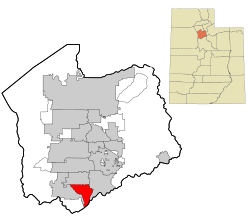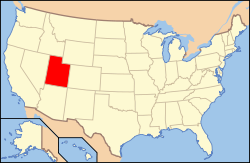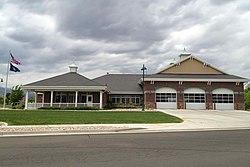
Licensing is a great way to grow your business. An experienced corporate lawyer in Buffdale, Utah can assist you use licensing to grow your business. When it comes to corporate law and business law, you really need someone who has experience. Ascent Law has several lawyers who have practiced for many years who know business law and can help you.
Once the legal rights to be included as part of the licensed subject matter have been properly defined, attention turns to determining the limitations, if any, to be imposed on the licensee’s ability to use the licensed rights. Restrictions on a licensee can take a number of different forms; however, the two most common types of restrictions typically relate to the permitted functional uses of the licensed subject matter and the demographic or geographic markets in which the licensee is allowed to exploit the licensed subject matter.
The permitted functional uses of the licensed subject matter should be clearly stated in the granting clause. For example, the grant of a patent license should include, if appropriate, the right to make, use, and sell the patented invention. Other limitations, commonly referred to as “field of use” restrictions, are described by reference to specific product applications and geographic areas, although the license agreement may often make reference to various demographic markets which include a number of product applications and which, absent an exception, may reach across any number of national borders.
Licensed Subject Matter
A license transfers to the licensee a set, or “package,” of statutory and non-statutory legal rights with respect to a specific technical process or product. For example, in its broadest form, a patent license allows the licensee to do all of the things that would otherwise be precluded by the patent monopoly: make, use, or sell the invention covered by the patent. The issues with respect to the permitted functional uses of the licensed subject matter relate to defining which legal rights originally granted to the holder of the patent, trademark, copyright, or trade secret will be passed on to the licensee. A specific description of each of the permitted functional uses of the licensed subject matter is extremely important, since it is unlikely that a permitted use will be implied other than from the actions of the parties.
The scope of the permitted functional uses of the licensed subject matter depends upon the intended purposes of the business relationship. For example, if the licensee is going to manufacture and sell the products covered under a licensed patent, the license should permit the licensee to make, use and sell the patented invention. Moreover, if the licensee is to sell the patented products under the licensor’s brand name, the license should cover the requisite trademarks. On the other hand, if a licensee merely wishes to use the patented invention as part of its own production process, or the licensee’s activities are confined to manufacturing products to be sold by others, the right to sell the invention will not be included as part of the licensing package. Whether you are the licensor or the licensee, speak to an experienced Buffdale Utah corporate attorney to ensure that your rights are protected.
Field of Use Restrictions
In many cases, the licensed rights may be used to manufacture a number of different products, each of which may be used for one or more distinguishable applications. For example, the licensed technology may allow the licensee to manufacture products suitable for sale in both the consumer market and the business market. Since a single licensee may not have the distribution skills for accessing both markets, the licensor may wish to select two licensees whose activities will be limited to those applications best suited to their sales network.
While restricting the use of the licensed subject matter to specified products or applications may be an appropriate means for advancing the licensor’s overall business objectives, restrictions of these sort on the licensee’s activities may be challenged under the antitrust or competition laws of various jurisdictions. In the United States, for example, these types of restrictions may not be upheld if they are used in an abusive fashion with the intent or effect of dividing or allocating markets.
Another form of application restriction can be imposed with respect to end users. For example, in the software area, a license may restrict the use of the software to one or more specific types of computers using a particular form of operating system, possibly due to the limited functionality of the licensed software. Also, a software licensor may restrict the use of its licensed software to a single computer, or limit use to one computer at a time, in an attempt to increase the volume of sales. However, licensors should be aware that attempting to limit the use of licensed software to a designated set of products may create antitrust problems if the licensor also manufactures or distributes the specified products.
Geographic and Territorial
The licensor will often attempt to impose geographic and territorial restrictions on the licensee’s ability to make and/or distribute the licensed products outside of the region or countries specified in the license. A restriction of this type is designed to allow the licensor to maintain control over the manner in which the licensed products are distributed and to permit the licensor to select the best mode of distribution in each geographic market. However, licensees will usually resist these limitations, since they generally see the license as a means for expanding their own distribution capabilities outside of their traditional markets.
Territorial restrictions typically arise in an international license, and the license agreement should clearly define each of the geographic areas, usually classified on the basis of national, community, or continental boundaries, within which the licensee is to be permitted to use the licensed rights. However, the licensor may include geographic restrictions in domestic licenses, perhaps coupled with a product or application limitation. For example, a distributor with a strong network of retail outlets in the western region of the United States may be given a license to sell the licensed products to the consumer market in that area, while other licensees are appointed to sell the licensed products through retailers outside of the western area.
In the United States, a patent licensor can lawfully impose territorial restrictions upon the manufacturing activities of a licensee, including a grant of an exclusive license covering all or any part of the United States and the imposition of restrictions as to territory in non-exclusive licenses. Territorial restrictions on the use of trade secrets and related technical information can be imposed if they are reasonable and the license is non-exclusive. However, in all cases, any purported territorial restrictions must be analyzed in light of their actual or potential effect on competition, particularly if the restraint may result in an unlawful division or allocation of markets among two or more competitors.
Exclusive and Non-Exclusive License Rights
In addition to the functional, product, and geographic restrictions that may be imposed upon the ability of the licensee to utilize the licensed subject matter, the value and utility of the licensed rights will also depend upon the ability to exploit the technology with little or no lawful competition from others, including the licensor itself. There are three general types of licensing categories that describe the license grant in terms of competitiveness: “exclusive” licenses, which provide the licensee with the right to exploit the rights without competition from the licensor or any other party; “semi-exclusive” licenses, which limit competition to the licensor; and “non-exclusive” licenses, which are used when one or more other licensees are to be granted the right to exploit the licensed subject matter in a manner that may compete with the uses of the first licensee.
Forms of License Exclusivity
An exclusive license grants to the licensee all of the rights held by the licensor with respect to one or more functional aspects of the technology rights. In effect, the licensor is precluded from competing with the licensee and must look to the anticipated stream of payments from the licensee as compensation for the costs associated with the development of the licensed technology. As with the license grant itself, exclusivity can be tailored to meet the goals and expectations of each of the parties. For example, exclusivity can be limited to a particular market or geographic area, such as when the licensee is given an exclusive license to make and sell products to retail outlets in California and other licensees are given non-exclusive rights to exploit other markets.
A semi-exclusive, or sole, license is similar to an exclusive license, although the licensor will reserve certain of the licensed rights for itself. These types of arrangements, which must be explicitly stated in the license, create two competitors, the licensor and the licensee, although it is most often the case that the license will include additional specifications as to how the parties are to utilize the right. As implied by the title of the arrangement, the licensor cannot appoint any other licensees with rights that may conflict with those granted to the original licensee.
A non-exclusive license simply grants certain rights to the licensee and does not insulate the licensee from competition from the licensor or from any other licensees created by the licensor. It may be possible for the licensor to grant a number of non-exclusive licenses covering essentially the same legal subject matter. If this is the case, the royalty rate the licensor is able to obtain for the license will necessarily be lower than if it were granting an exclusive license. A non-exclusive license is often acquired by the licensee in order to ensure that the licensor will not commence an infringement action against the licensee when a new product or application developed by the licensee arguably overlaps with the existing legal rights of the licensor.
It is important to remember that the terms “exclusive” and “non-exclusive” have different meanings around the world, and that a careful review of the applicable national law will be required in order to ensure that the license clearly and legally describes the rights and intentions of the parties. For example, in the United States, an exclusive license implies an agreement by the licensor not to license the rights to others and not to exploit the rights for its own benefit within the exclusively licensed territory. However, in France, a grant of an exclusive license does not prevent the licensor from exploiting a patent for personal benefit, unless the license contains a specific restriction on the actions of the licensor.
Strategic Considerations in Exclusive Licensing
When your business is entering into an exclusive licensing deal, there are strategic considerations that must be kept in mind to ensure that your business gets the best deal.
Obviously, the licensee perceives an exclusive license as being the most advantageous form of technology transfer, even though it can be anticipated that the cost of such a license will exceed the amount required for a non-exclusive license. An exclusive license provides the licensee with access to all of the results of the licensor’s research and development work in the specific area, without the need to incur the substantial up-front costs associated therewith. Moreover, an exclusive grant allows the licensee to achieve its strategic objectives of being first to market with respect to the specified products.
For its part, a licensor will be understandably reticent to divest itself of control over the exploitation of the technology rights by granting an exclusive license, particularly when it has invested a significant amount of funds and time in developing the technology. However, in many cases, the grant of an exclusive license to a specific licensee may be advantageous to the licensor given the perceived skills and resources of the licensee in the areas of manufacturing and distribution. Accordingly, it is more than likely that any grant of an exclusive license will include a number of conditions calculated to ensure that the licensee will perform in a manner that allows the licensor to realize the optimal benefits from the transferred technology.
Whether your business is the licensee or the licensor, an experienced Buffdale Utah corporate lawyer can help you get the best out of a licensing deal. In fact, if you need any business legal help with your corporation, llc, or company, you should call Ascent Law for your Free business law Consultation.
Bluffdale Utah Corporate Lawyer Free Consultation
When you need help from a corporate lawyer in Bluffdale Utah, please call Ascent Law for your free consultation (801) 676-5506. We want to help you.
8833 S. Redwood Road, Suite C
West Jordan, Utah
84088 United States
Telephone: (801) 676-5506
Recent Posts
Can You Stop Foreclosure Once It Starts?
5 Reasons You Need A West Valley City Car Accident Attorney
Ascent Law LLC St. George Utah Office
Ascent Law LLC Ogden Utah Office
Bluffdale, Utah


Bluffdale is a city in Salt Lake and Utah counties in the U.S. state of Utah, located about 20 miles (32 km) south of Salt Lake City. As of the 2020 census, the city population was 17,014.
From 2011 to 2013, the National Security Agency‘s (NSA) data storage center, the Utah Data Center, was constructed at Camp Williams in Bluffdale. It is approximately 1 million square feet in size.[5][6]
[geocentric_weather id=”404fb9c6-d4df-4872-80d2-dae4148453bf”]
[geocentric_about id=”404fb9c6-d4df-4872-80d2-dae4148453bf”]
[geocentric_neighborhoods id=”404fb9c6-d4df-4872-80d2-dae4148453bf”]
[geocentric_thingstodo id=”404fb9c6-d4df-4872-80d2-dae4148453bf”]
[geocentric_busstops id=”404fb9c6-d4df-4872-80d2-dae4148453bf”]
[geocentric_mapembed id=”404fb9c6-d4df-4872-80d2-dae4148453bf”]
[geocentric_drivingdirections id=”404fb9c6-d4df-4872-80d2-dae4148453bf”]
[geocentric_reviews id=”404fb9c6-d4df-4872-80d2-dae4148453bf”]





